
The arm of the Secret Service that protects presidents, vice presidents and their families is nearly 10% smaller than it was a decade ago despite warnings from Congress and a government watchdog that it needed to add agents or risk compromising its mission.
That shortfall resulted in the agency denying requests for additional personnel from agents guarding former President Donald Trump over the last two years but no resource requests were denied for the July 13 rally where Trump was shot, a Secret Service official told NBC News. The repeated denial of resources was first reported by the Washington Post.
“In some instances where specific Secret Service specialized units or resources were not provided, the agency made modifications to ensure the security of the protectee,” the agency said in a statement. “This may include utilizing state or local partners to provide specialized functions or otherwise identifying alternatives to reduce public exposure of a protectee.”
The latest congressional budget figures show that the employee head count assigned to protect the president and other senior officials and investigate threats against them dropped by roughly 350 staffers — down from 4,027 in fiscal 2014 to 3,671 in the current fiscal year.
At the same time, the number of people that Protective Operations had to protect grew and the potential threats it faced became more diverse. Today, the U.S. Secret Service faces chronic understaffing for its most high-profile roles and competition from the private sector, which routinely poaches agents for much higher-paying and less punishing jobs.
As the agency is being roundly criticized for failing to adequately protect former President Donald Trump at a rally in Butler, Pennsylvania, local and federal law enforcement officials say it’s widely known within policing circles that the organization whose agents would “take a bullet for the president” is overwhelmed.
The Secret Service did not respond to a list of questions from NBC News regarding the state of the agency in recent years. Earlier this week, a Secret Service spokesperson said they could not discuss resources for security reasons but praised the agency’s performance.
“Out of concern for operational security, the U.S. Secret Service does not discuss the means and methods used for our protective operations,” the spokesperson said. “Ensuring the safety and security of national leaders and presidential candidates is the core mission of the U.S. Secret Service, the finest protective service team in the world.”
The agency’s staffing problems do not appear to be caused by a lack of funding. The budget of the Secret Service nearly doubled over the last decade. It jumped from around $1.8 billion in fiscal 2014 to more than $3 billion, according to government filings. During the same period, agencywide staffing rose by nearly 25%, with over 8,100 personnel. That includes roughly 3,200 special agents and 1,300 uniformed officers, according to the agency’s website.
Adding to the strain, both presidents Joe Biden and Trump, who are older presidents with grandchildren, have had Secret Service protection for their large, multigenerational families. Legally, the Secret Service is required to protect presidents, vice presidents and their immediate families, which include grandchildren under federal rules.
Secret Service agents must also guard former presidents and vice presidents plus their spouses and children under 16, as well as visiting heads of state. In election years, they must also protect leading presidential and vice presidential candidates and their spouses.
“Now they’re protecting this person, now they’re doing this event, now it starts to just add more and more responsibilities without necessarily adding more and more agents,” said Jason Russell, a former agent who owns a private security company.
Budget documents reviewed by NBC News show that the agency requested more than $25 million in fiscal year 2018 to pay agents to work in New York to protect Trump Tower along with Trump’s children and grandchildren. Three years later, the agency requested funding for extra vehicles to protect Trump after he left office.
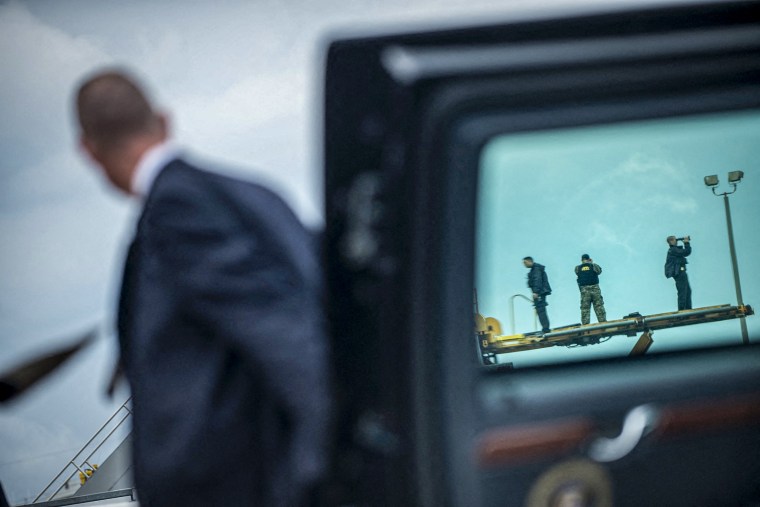
In 2020, the Government Accountability Office interviewed current and former agents to see if the agency was overburdened. Agents told the GAO that working protection details leads to psychological stress.
Instead of simply accompanying presidents on trips and returning to Washington, agents in protection details can spend weeks in other cities, inspecting and securing sites the president will visit. Some agents spend 100 or 200 nights a year away from home, and it’s not sustainable for agents to work protection assignments for years at a time.
The Secret Service also had the National Academy of Public Administration dig into its staffing challenges. In a 2021 report, NAPA found that agents are tasked with “more than ever within tight resources.”
“Threats against the President and other protectees have grown in intensity and scale with the emergence of new technologies and the heightened level of violence in the country,” the report said.
Frank Loveridge, who spent 22 years with the agency including as a supervisor in the Presidential Protection Division during President Barack Obama’s second term, said agents were stretched thin.
“You’re being pushed so hard all the time. You’re on the road for three straight weeks with no days off, working 16-hour days traveling,” said Loveridge, now a director of corporate security.
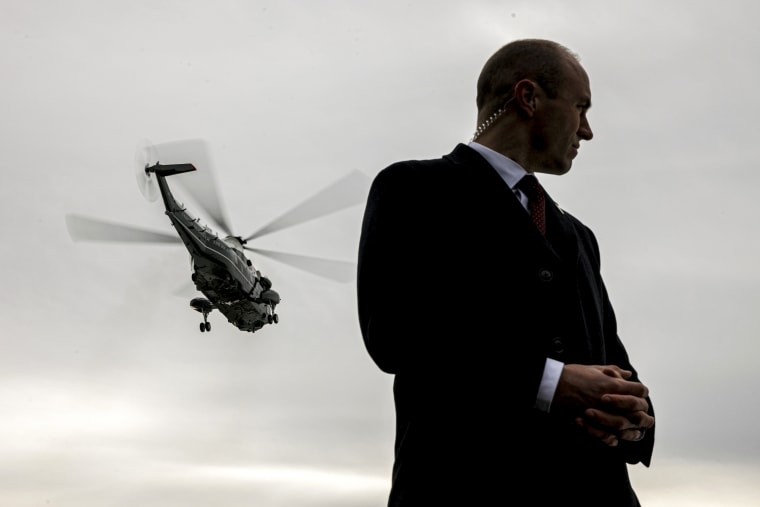
Buffeted by scandals
Throughout the 2010s, the Secret Service was buffeted by one scandal after another. A scathing 2015 congressional report called the Secret Service an “agency in crisis” and detailed a series of alarming failings, including: In 2011, a gunman fired at least seven rounds into Obama’s primary residence at the White House; in 2012, agents admitted engaging in misconduct with prostitutes in Colombia, which led to several resignations and removals; in 2014, a man armed with a knife jumped over a White House fence, making it inside the East Room.
“Several incidents have made it abundantly clear that USSS is in crisis,” states the beginning of the 438-page congressional report, using an acronym for the organization. “The agency’s weaknesses have been exposed by a series of security failures.”
In the wake of the scandals, the Secret Service lost roughly 500 personnel in protective operations, according to budget documents covering fiscal 2014 and 2015. The agency also convened an independent panel to assess its challenges and released a list of recommended reforms. Suggested agencywide changes included increases to training and improving the hiring process to make it more efficient.
Between 2019 and 2022, the GAO released a series of reviews of the reforms’ implementation. They found that the Secret Service still had a particularly slow-moving hiring process. GAO officials say the background-check process for an agent is intensive and can take years because applicants could guard the president one day.
Once hired, young agents must work on other assignments, such as investigating financial crimes, in field offices around the country. They then participate in presidential protection details when the president visits their region to gain training.
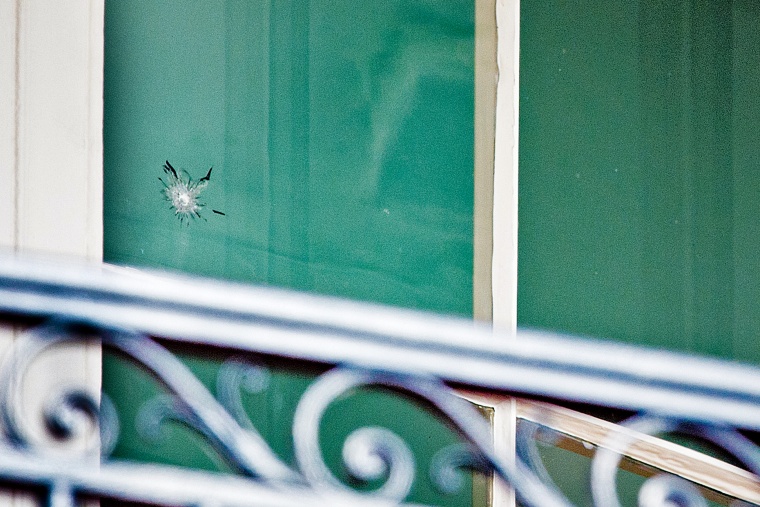
After the police murder of George Floyd, the Secret Service and federal and local law enforcement agencies struggled with recruitment. Working for the Secret Service is also known as both grueling and tedious, with agents standing on their feet and waiting for hours while officials meet.
The GAO found that agents were not always paid for all the extra hours worked. Congress stepped in and passed legislation that provides overtime for staffers who work in protection, but the measure expires in 2028.
“We give up nights, weekends, holidays,” Robert McDonald, a retired Secret Service agent and now a lecturer at the University of New Haven, said. “That’s how we serve the public. So it’s very difficult to get people interested in this type of situation of protecting the community or going into the Secret Service.”
The GAO also found that the agency was overscheduling agents in the presidential and vice presidential protective divisions and not giving them enough time to train on the job, said Jason Bair, the managing director of the GAO’s homeland security and justice team.
“You inevitably have to make difficult decisions about what people are going to focus their time and effort,” Bair told NBC News.
In addition to agents who serve on protective details, uniformed officers within the agency stand post at the White House, the Treasury Department and foreign diplomatic missions in Washington, D.C. Uniformed officers also screen the public as they enter high-profile events when presidents speak.
Christopher McClenic, a retired 23-year veteran of the Secret Service who worked on President Bill Clinton’s detail, said the responsibilities particularly of the uniformed division were “never-ending.”
“You will be working 12-hour shifts pretty much every day into perpetuity,” McClenic said. “I don’t think the uniform division has ever been fully staffed.”
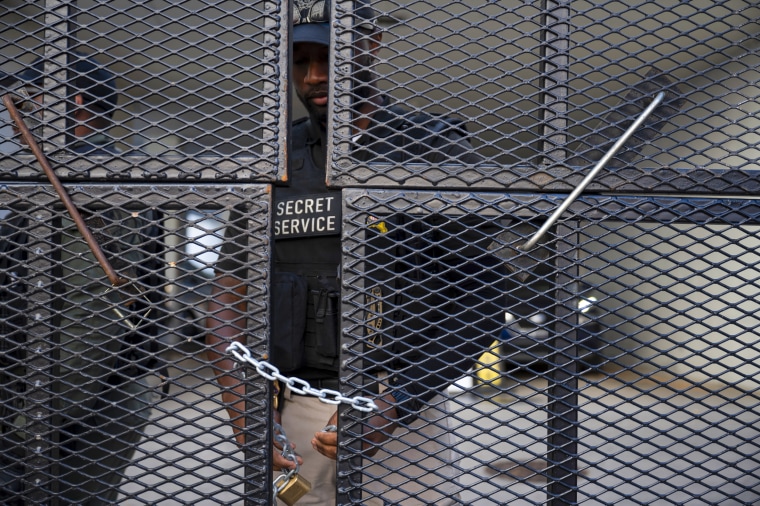
Threats of growing breadth and complexity
Although federal officials declined to share the exact number of threats to the president and other top political leaders, FBI Director Christopher Wray recently testified to Congress that threats against the United States are growing in breadth and complexity. And experts warn that political violence could intensify during the year’s heated U.S election cycle.
In January, the U.S. Capitol Police announced they had investigated 8,008 threats against members of Congress in 2023. That was slightly lower than the 9,625 threats the agency investigated in 2021 after the Jan. 6 assault on the Capitol. Between 2018 and 2021, the number of threats against senators and representatives nearly doubled.
In 2023, the husband of Democratic Rep. Nancy Pelosi of California and two staff members of Democratic Rep. Gerry Connolly of Virginia were attacked. In 2017, then-Republican House Majority Whip Steve Scalise and three other people were wounded when a gunman opened fire on members of the Republican congressional baseball team.
The tensions are exacerbated by the fact that this year’s presidential campaign now includes an assassination attempt against Trump. The Biden administration also recently disclosed intelligence that Iran had plotted to kill Trump.
At the same time, as in past presidential campaign seasons, more individuals are now under Secret Service protection — including vice presidential nominee Sen. JD Vance, R-Ohio, and his family, along with independent presidential candidate Robert F. Kennedy Jr., the son of a man assassinated while on the campaign trail.
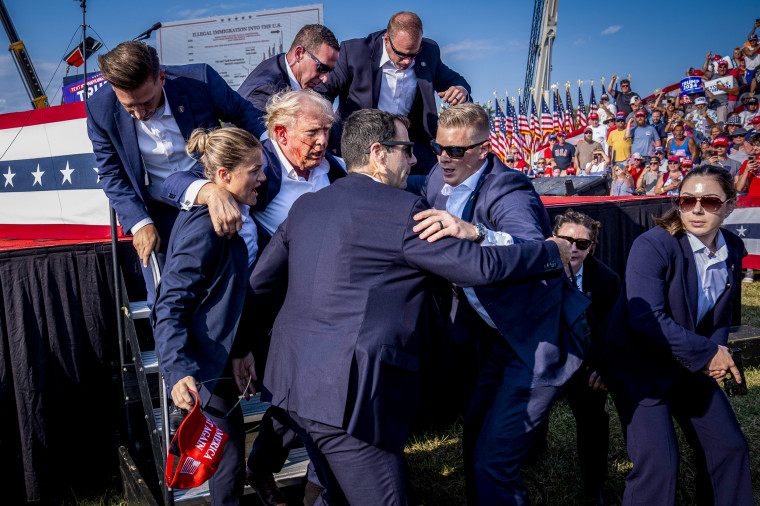
A final challenge is retention. Former Secret Service officials say it can be difficult to get experienced agents to remain on the job. Some leave to work for other government agencies with less intense schedules, while others join security firms and other private businesses, where the pay can be far higher.
Former Secret Service agents are top hires for Derrick Parker, who runs security for celebrities after his career in the New York Police Department investigating rappers.
“They are the best-trained law enforcement personnel in the country and among the best in the world,” Parker said. “That makes them very attractive to hire in the private sector, especially VIP protection.”
Protecting celebrities, versus government officials, often translates into less stressful lifestyles, Parker added.
McClenic, the 23-year Secret Service veteran who retired from the agency two years ago to work full time as an attorney, said his life is “better, easier, more fulfilled” than when he was an agent.
“Now, instead of wondering whether or not I will be home to enjoy [my wife’s] company, have dinner with her, maybe even a glass of wine, and sleep in the same bed,” he said, “I don’t have to wonder that anymore.”




















